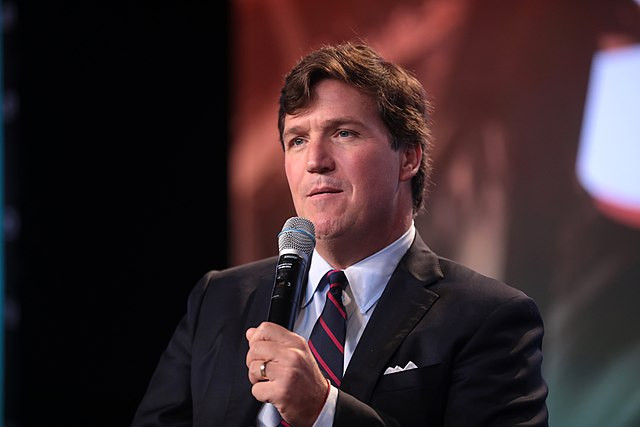Tucker Carlson, the former Fox News host, recently disclosed that he received stark warnings from his legal team regarding the potential repercussions of conducting an interview with Russian President Vladimir Putin. Speaking on a three-hour podcast with Lex Fridman, Carlson revealed that his lawyers, affiliated with one of the largest law firms globally, cautioned him about the risk of arrest by the U.S. government for sanctions violations if he proceeded with the interview in Russia.
Despite the legal advice, Carlson expressed his determination to pursue the interview, citing his commitment to journalistic inquiry and his refusal to acknowledge the legitimacy of such restrictions. "I'm American and I've been here my whole life and that's so outrageous that I'm happy to face that risk because I so reject the premise," Carlson stated, highlighting his readiness to challenge the potential legal consequences.
The nature of Carlson's questions during the interview was highlighted as a significant factor that could influence the legal outcome upon his return to the United States. One lawyer specifically mentioned, "A lot will depend on the questions that you ask Putin. If you are seen as too nice to him, you could get arrested when you come back," underscoring the delicate balance Carlson needed to maintain during the conversation.
Tucker Carlson with Lex Fridman this morning, his attorney's advice in regards to interviewing Putin:
"Their sincere conclusion was, do not do this...a lot will depend on the questions you ask of Putin. If you're seen as too nice to him you could be arrested when you come back" pic.twitter.com/XkqbqhvaDk — Clint Russell (@LibertyLockPod) February 27, 2024
Carlson's motivation for the interview stemmed from a desire to present Putin's perspective on the war in Ukraine, a narrative he felt was underrepresented or biased in American journalism. Following the broadcast, the interview received a spectrum of reactions, including comments from Putin, who had anticipated a more confrontational approach from Carlson, and Ukrainian President Volodymyr Zelensky, who dismissed the interview as "two hours of bulls---."
In addition to discussing the geopolitical implications of his dialogue with Putin, Carlson also faced criticism for seemingly trivial comments made during his visit to Russia, such as his observations on the country's grocery stores and public transit system. These remarks, along with the overall tone of the interview, contributed to the controversy surrounding Carlson's engagement with Putin.
The interview also coincided with the death of jailed activist Alexei Navalny in a Russian prison, an event that further intensified scrutiny of Carlson's interaction with the Russian leader. The U.S. and others have implicated Putin in Navalny's death, adding another layer of complexity to the narrative surrounding Carlson's visit to Russia.
Carlson's venture into conducting the Putin interview, despite legal warnings and the subsequent fallout, underscores the intricate interplay between journalism, geopolitics, and legal boundaries. His decision to proceed, rooted in a staunch belief in journalistic freedom and a challenge to perceived overreach by the U.S. government, highlights the contentious nature of engaging with figures like Putin amidst ongoing international tensions.






